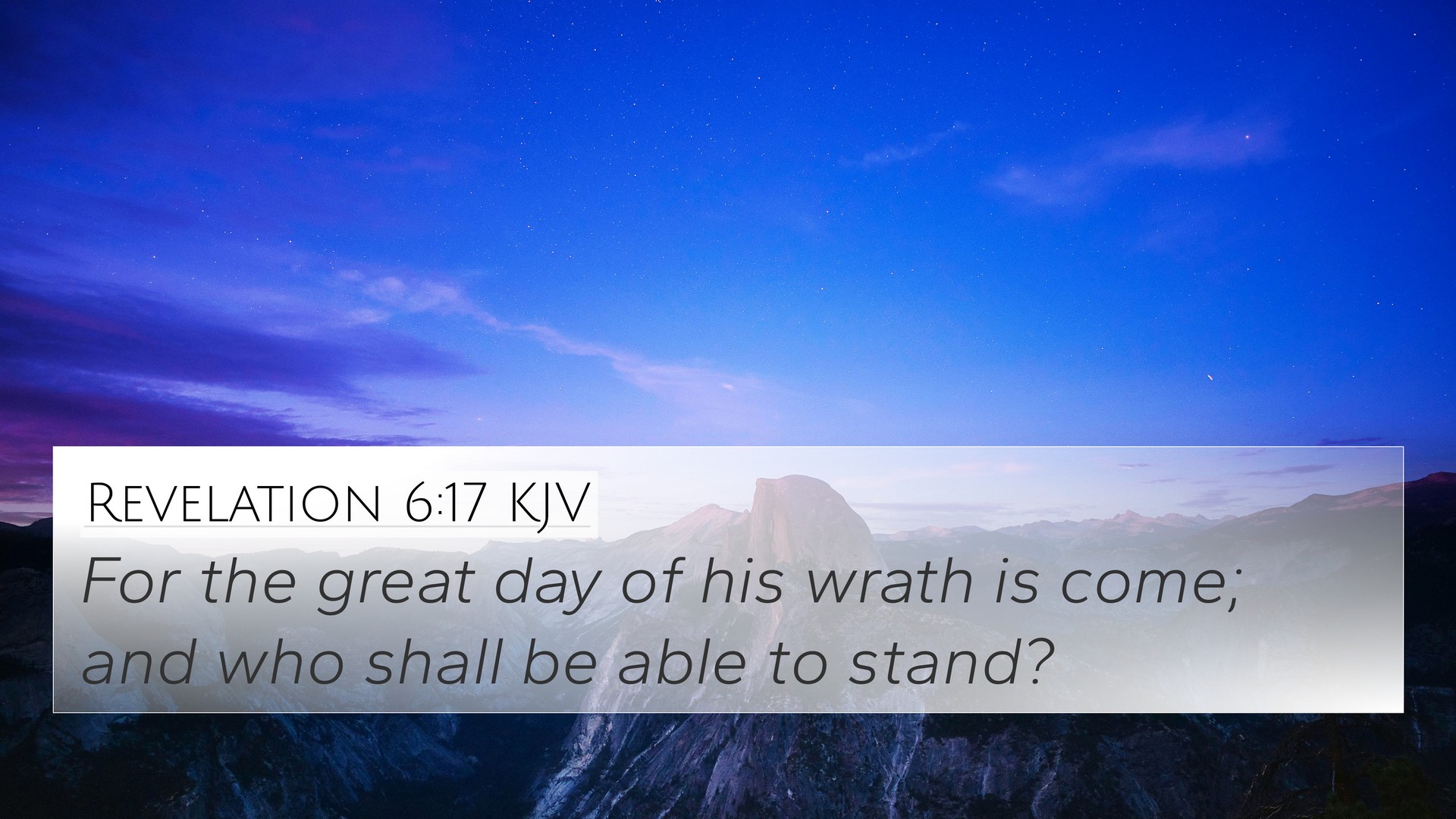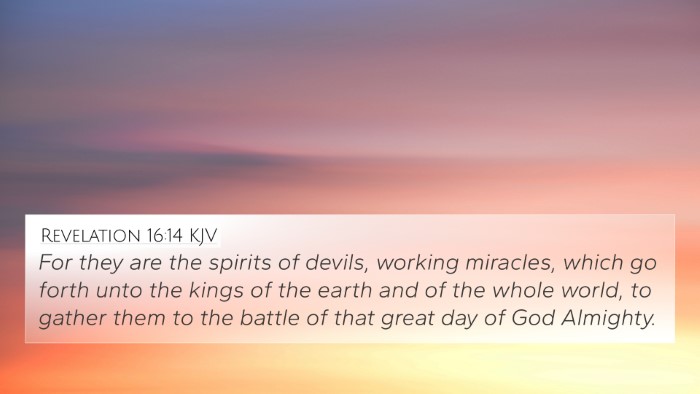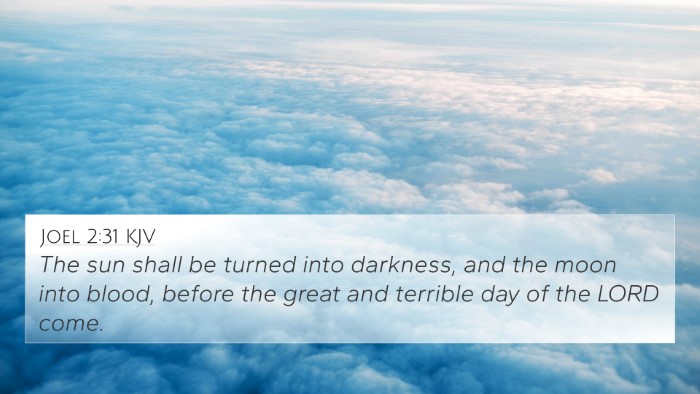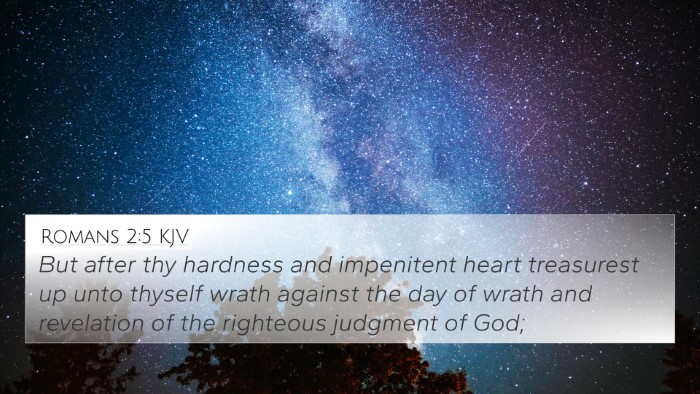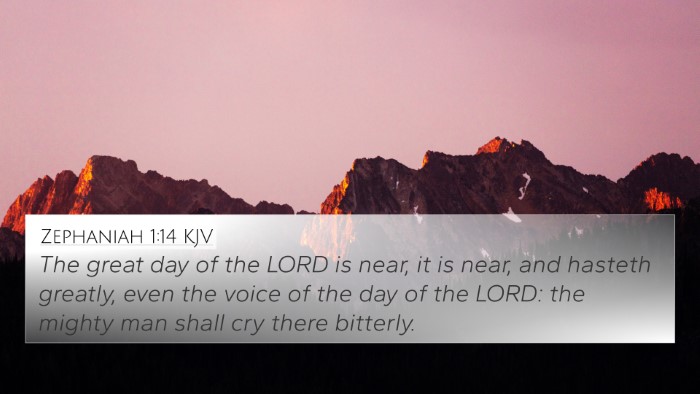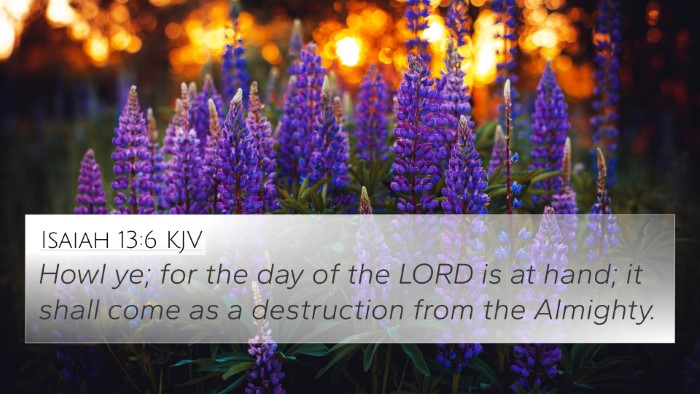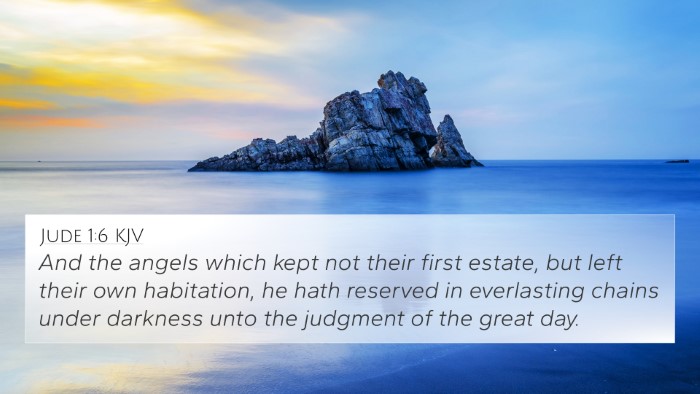Understanding Revelation 6:17
Bible Verse: Revelation 6:17 - "For the great day of their wrath is come; and who shall be able to stand?"
Summary of Meaning
This verse appears at the closing of the sixth chapter of Revelation, a pivotal moment that underscores the severity of God's ultimate judgement. The phrase "great day of their wrath" refers to the impending divine judgment that would befall humanity, which Matthew Henry describes as a profound warning regarding the consequences of sin and rebellion against God. Albert Barnes emphasizes that this day represents the culmination of judgment that settles the eternal fate of individuals. Adam Clarke elaborates that the question "who shall be able to stand?" highlights the desperate situation of sinners in the face of God’s justice, indicating that none can withstand His anger without divine mercy.
Commentary Insights
- Matthew Henry: He believes that this verse serves as both a warning and an appeal for repentance. Henry states that the revelation of God's wrath against sin should lead the faithful to a greater reliance on God’s mercy.
- Albert Barnes: Barnes asserts that the verse serves to remind us of the certainty and universality of God’s judgment. He discusses the implications for both believers and non-believers, urging a contemplation of one's spiritual state before God.
- Adam Clarke: Clarke points out that this verse encapsulates a moment of despair for those who have rejected God. He stresses the importance of recognizing divine authority, noting that the finality of judgment calls for humble acknowledgment from all.
Bible Cross-References
This verse is significantly connected with several other scripture passages that explore themes of divine judgment and human accountability. Here are some key references:
- Matthew 24:29-30: This passage describes cosmic disturbances preceding Christ’s return, stressing a similar theme of judgment.
- 2 Peter 3:10: Here, Peter speaks of the day of the Lord coming as a thief in the night, mirroring the urgency and surprise of coming judgment.
- Revelation 20:11-15: The Great White Throne Judgment elaborates on the finality of God's judgment and includes the fate of the dead based on their deeds.
- Isaiah 13:9: This verse foresees a day of the Lord filled with wrath and fierce anger, highlighting the inevitability of divine retribution.
- Romans 2:5: Paul speaks about the righteous judgment of God, portraying the consequences of impenitence that align with the warning in Revelation 6:17.
- Hebrews 10:31: “It is a fearful thing to fall into the hands of the living God,” which serves as a grave reminder of the seriousness of divine judgment.
- Joel 2:11: The day of the Lord is great and terrible, affirming the hopelessness of the unrepentant before God’s wrath.
Thematic Connections
By examining Revelation 6:17 through the lens of cross-referencing, we uncover thematic connections throughout the Bible that deepen our understanding of God's character concerning judgment and mercy. These connections become resources during a Bible cross-reference study.
Cautionary Themes
- Each reference calls attention to the necessity of being prepared for the Lord’s return, urging believers to remain steadfast in faith.
- The questions raised in Reverend 6:17 resonate through the scriptures, prompting readers to consider their own standing with God.
Tools for Cross-Referencing
Utilizing tools like a Bible concordance or a Bible cross-reference guide can greatly aid in finding verses that relate to the themes within Revelation 6:17. Here are ways to enhance your cross-referencing:
- How to find cross-references: Read parallel passages and notes in study Bibles that provide context and additional insights.
- Bible chain references: These systems help trace themes from one scripture to another based on keywords and concepts.
- Comparative Bible verse analysis: Engage in side-by-side comparisons of similar verses, particularly those concerning judgment.
- Inter-Biblical dialogue: Explore how the Old and New Testaments converse regarding themes of judgment and salvation.
This comprehensive examination of Revelation 6:17, paired with its cross-references, opens a deeper understanding of the text's urgency and implications for believers today.
